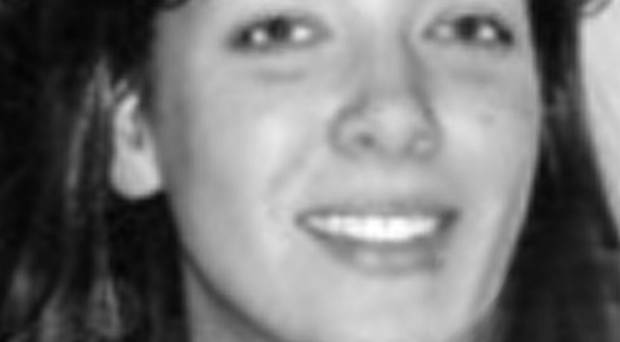
Tragic Derry woman Aine McLaughlin took her own life
A CORONER has criticised the lack of communication between two health trusts during the inquest of a young Derry woman who tragically took her own life.
Aine McLaughlin (27) died on October 17, 2012.
Two doctors admitted not knowing of a treatment service that could have helped Ms McLaughlin in Derry, after she had initially been seen in Belfast.
It also emerged that the health trusts in Derry and Belfast had different computer systems, and information may not have been shared.
Nor were there protocols in place for the transfer of mental health patients.
Coroner Joe McCrisken criticised the inflexibility of the systems in place at the time, saying: “It’s Derry, it’s not the Moon – it’s 60 miles up the road.
“The system should be flexible enough.”
The inquest heard that before her death the legal graduate had moved to Belfast from Manchester in order to start a new job as a contracts officer at the NI Technology Centre at Queen’s University.
A statement by her sister Seana Hackett, which was read to the court, revealed that Ms McLaughlin had been registered at a Belfast medical practice.
After confiding to her aunt, a retired mental health nurse, that she felt suicidal on August 18, 2012, Aine was prescribed antidepressants by her family doctor’s practice in Derry during a visit.
After being seen at Woodstock Lodge in Belfast, the Mater Hospital, Lagan Valley Hospital and at a private psychiatric appointment, Ms McLaughlin entered the care of the Belfast Trust’s Home Treatment Team on September 12.
A statement by mental health nurse Bernadette Kerr was read to the court, which said that Ms McLaughlin was experiencing “symptoms of depression and anxiety including suicidal thoughts”.
However, the statement said Ms McLaughlin “denied any active suicidal planning”.
Mr McCrisken told Ms Kerr, who also gave evidence in court, that “one of the main concerns is the issue of continuity of care”.
He added that nine medical staff were involved in Ms McLaughlin’s care during 13 visits, meaning she “spent most of the time explaining what she had already explained to someone else”.
Ms Kerr replied that she had visited Aine six times, and noted that “she spent a lot of time in Derry”.
However, Mr McCrisken told Ms Kerr that there was an “obligation to people wherever they are” and that the “system has to adapt”.
At one point Mr McCrisken queried the sharing of patients’ notes.
Dr Margaret Kelly, who was working as a core trainee doctor in psychiatry with the Belfast Trust’s Home Treatment Team at the time, revealed that the Belfast Trust and Western Trust didn’t have the same computer systems, and that issues such as patient confidentiality could prevent the sharing of information.
A barrister for the Belfast Trust, Mr Lavery, said that a protocol for the transfer of mental health patients between trusts had since been introduced, but hadn’t been in effect at the time of Ms McLaughlin’s death.
The inquest also heard from lead clinician and consultant psychiatrist Dr McGarry, a former Chair of the Royal College NI who works in the Belfast Trust’s Home Treatment Team.
He admitted he did not know that there was an equivalent team in Derry.
Dr McGarry said that he had “never seen a patient who had been moved around quite so much as this patient”.
However, the McLaughlin family’s barrister Des Fahy responded that the “narrative of a transient person moving between Belfast and Derry was not borne out by facts”.
Mr McCrisken said “systems have to adapt” and that someone should have followed up on Ms McLaughlin’s case after Ms Kerr went on sick leave.
“It’s a great system when it works, but if it doesn’t work, well, someone dies,” he added.
On October 1 Ms McLaughlin had phoned her father after attempting suicide, and was taken to Derry to be with her family.
Ms Kerr said that as Ms McLaughlin “wasn’t sure how long she was going to be in Derry” she “wasn’t officially discharged” but was given a “contingency plan” by her.
This involved providing her with the number for Lifeline, the number for the Belfast Home Treatment Team, and making her father aware of the risks.
Ms Kerr said she “simply wasn’t aware” that there was a home treatment team in Derry, which had come into effect that very day, October 1, 2012.
Instead, Ms Kerr rang Ms McLaughlin’s family GP in Derry, where she was registered as a temporary patient.
When she was unable to speak to the GP, she left a message with a receptionist.
Ms Kerr subsequently went on sick leave for two months.
Dr Molloy from the Derry practice said she had returned the call and expected someone from Belfast to phone back, but “that didn’t happen”.
Dr Molloy said she “wasn’t aware” of the treatment Ms McLaughlin had been receiving in Belfast, or of the fact that a similar service had just started up in Derry.
Her practice colleague, Dr McAteer, who also treated Ms McLaughlin, said the patient had informed him that she was under the care of a psychiatric team in Belfast and that she “thought the Home Treatment Team would contact us as she told them she was going back to Derry”.
However, this did not happen, and Dr McAteer arranged a review appointment for October 17, the date on which Ms McLaughlin died.
A statement by Dr Kelly referred to Ms McLaughlin as suffering from a “moderate depressive episode”.
When questioned by Mr Fahy, it emerged that Dr Kelly had not had access to a letter from consultant psychiatrist Dr Sloan, who had evaluated Ms McLaughlin as suffering from a “severe depressive episode”.
Another consultant psychiatrist, Dr Harbinson, had described Ms McLaughlin as suffering from a “severe depressive illness” and “suicidal ideation”.
However, Dr Kelly said that even if she had access to that information she “wouldn’t have changed the management plan”.
The inquest continues.
Tags:




